
 A Minnesota PBS Initiative
A Minnesota PBS Initiative
I arrived in Vietnam in early November 1970, landing in Bien Hoa. After a few days at the replacement depot I received my orders to the 5th Special Forces Group at Nha Trang. Arriving in Group Headquarters I was asked where I would like to be assigned and I said an “A” Site. This was late in the war and all the “A” sites were being shut down, so I was assigned to B-51 at Dong Ba Thin, about 20 road miles south of Nha Trang down Highway 1.
B-51 was a big camp. Most of the camp was a Vietnamese Special Forces Camp (LLDB) devoted to training Vietnamese paratroopers and Civilian Irregular Defense Forces (CIDG). Shortly before I arrived all of this training had been shut down pending a new secret mission, which by the end of November we found out was going to be the FANK Program, training the Cambodian Army.
Because Special Forces camps all over Vietnam were being shut down or turned over to the Vietnamese, the American personnel from the closing camps were being filtered through the few remaining camps to complete their tours. This caused a regular and rather chaotic turnover in personnel as they would stay for a month to most of a year depending on how much time remained on their tour.
One day, probably in early January 1971, two dogs arrived from one of the closing camps — Red Dog and her puppy.
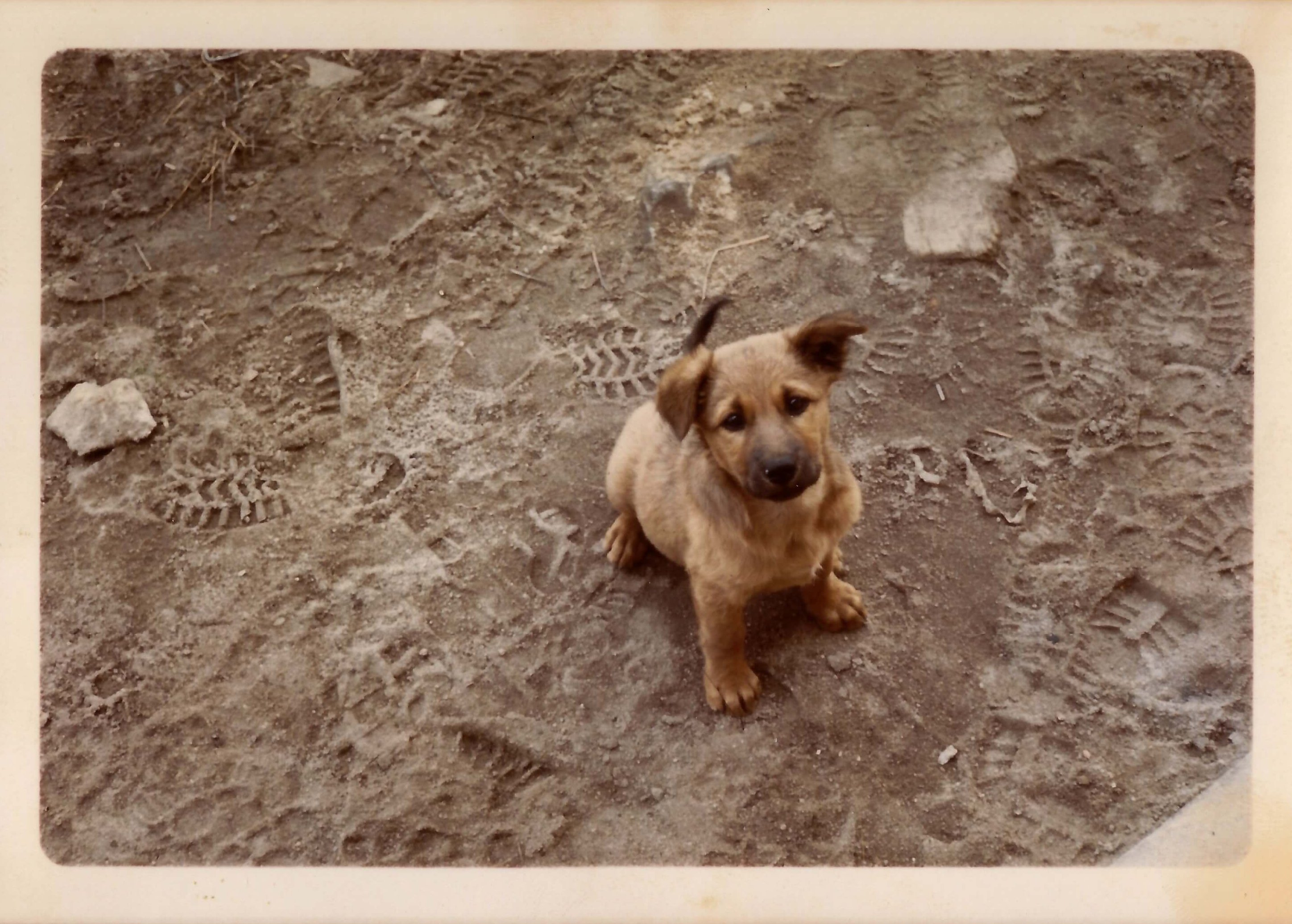
Ziggy the puppy
One day, probably in early January 1971, two dogs arrived from one of the closing camps — Red Dog and her puppy, yet unnamed and unclaimed. Red looked like a retriever but smaller and redder in color and she had a reputation as being a great dog. As is usually the case her puppy was incredibly cute. I adopted him. Under the circumstances I wanted him to be a warrior dog so I named him Siegfried after the Wagnerian warrior hero. Soon he was known around camp as Ziggy.
The reality was that he was a camp dog more than just my dog, but everyone referred to him as my dog. If he caused a problem (which rarely happened), I was the one who was called about it.
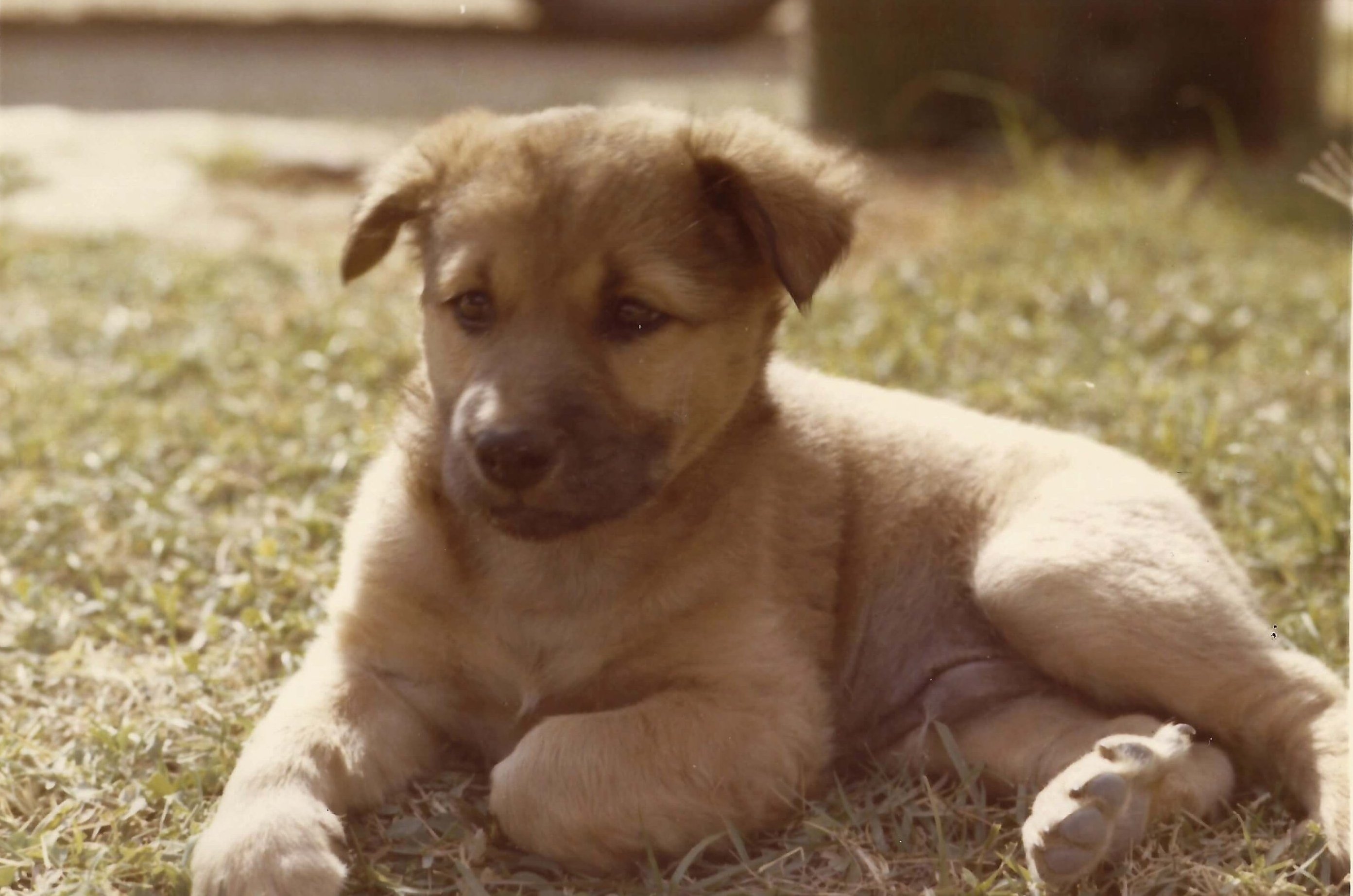
Ziggy the puppy.
One night when he was still pretty small he got out and wedged himself between the perimeter blast wall and outer wall of Major Joczik’s quarters. (Joczik was the camp’s no-BS commander). I heard Ziggy barking but was too tired to get up, and I laid in bed hoping vainly that he would stop. Shortly, there was a knock on my door and I was told in no uncertain terms to get my damn dog and make him shut up. I found a long stick and used it to slowly back Ziggy out of the narrow space between the blast wall and Joczik’s quarters. Ziggy spent the rest of the night quietly in my room.
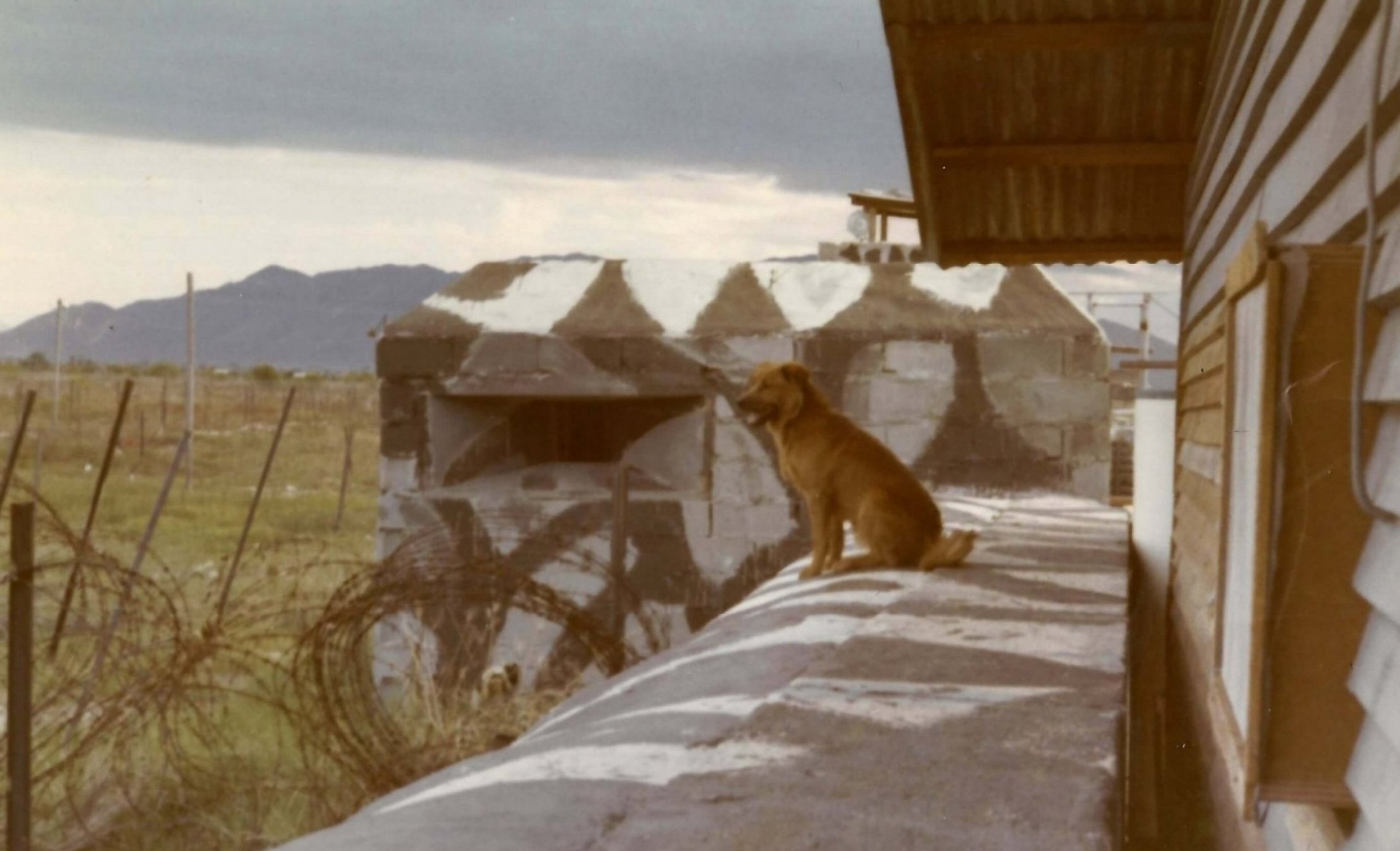
Ziggy on guard on the camp perimeter blast wall.
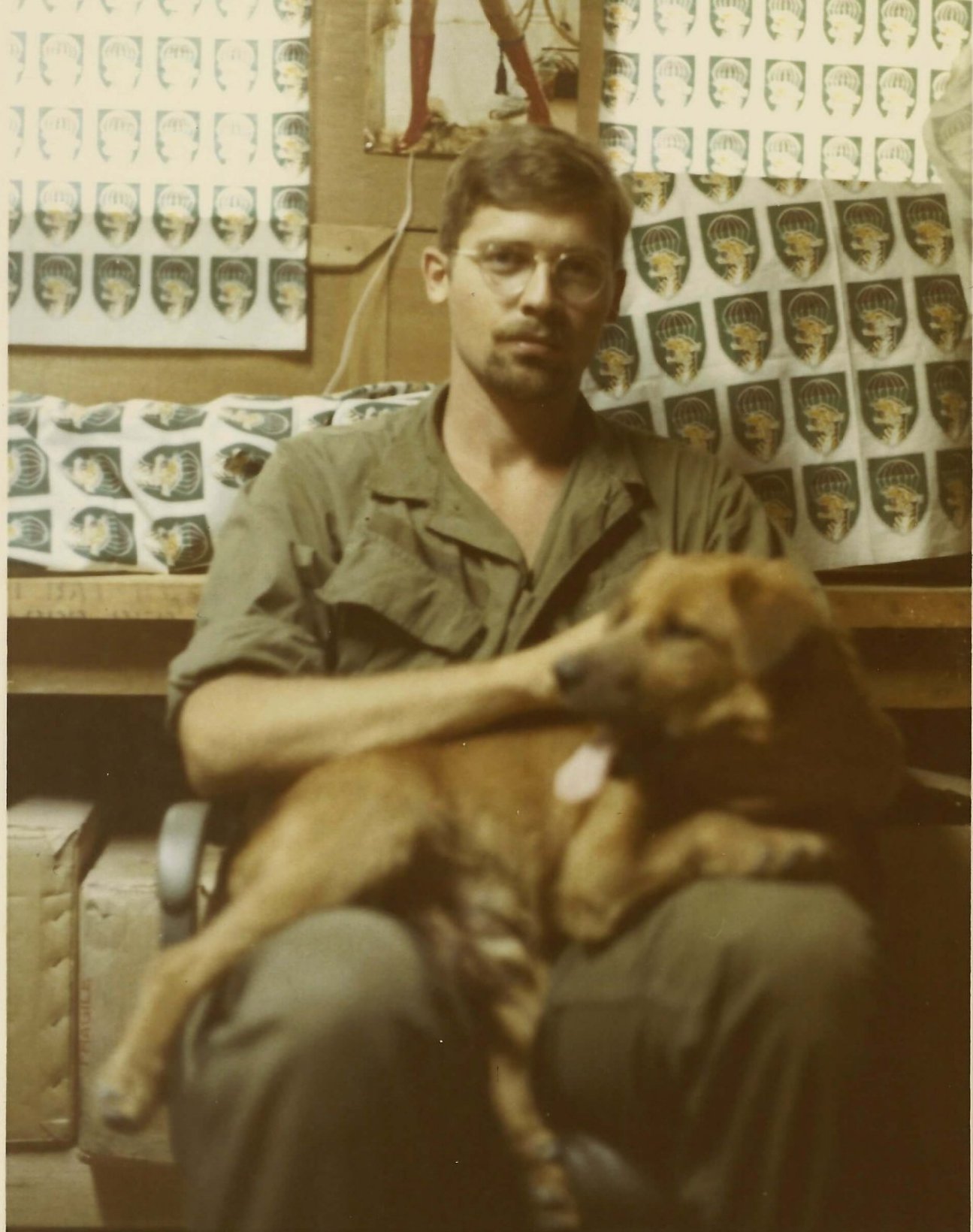
Lieutenant Bekke with his dog, Ziggy, in Vietnam.
I should have spent more time training him and working with him but I had other things to do. Anyway, Ziggy was very smart and he seemed to have a good intuitive sense about what to do or not to do. He was very well liked around the camp and was never a pest. Ziggy hunted rats in the camp and one day I found part of what must have once been a rat under my bed. I guess it was a gift from Ziggy.
We had a lot of Vietnamese civilians working in the camp. One of the older women, named Bong really seemed to love him, she called him "Ligfleed," and was really thrilled when I gave her a copy of one of Ziggy’s puppy photos. We didn’t have regular army cooks. We had a civilian contract Chinese cook who we called Cookie and a Vietnamese baker who we called Bill. They took care of feeding Ziggy out of mess hall scraps and I think he ate very well by any standard. I often wondered if the Vietnamese had plans for a strong healthy well-fed dog after the Americans left.
I was a two-year obligation officer and at some point in the spring or early summer of 1971 we got word that because of the withdrawal we would all get mandatory two month drops off of our tours. I wasn’t too happy about this because I had pretty good duty, was making pretty good money, and really didn’t look forward to going home to what I thought was going to be a nation hostile to guys who had served in Vietnam.
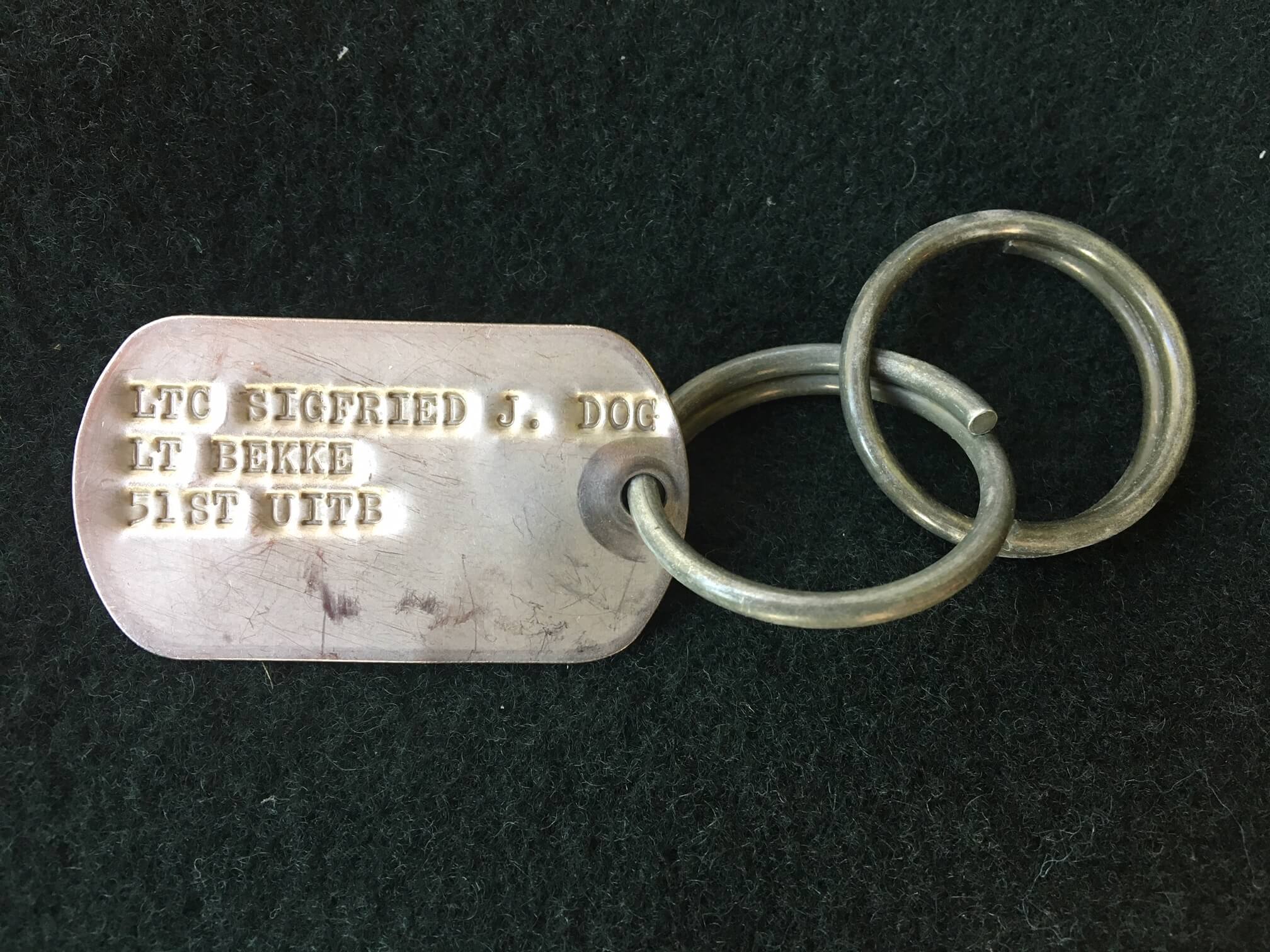
Ziggy's "official" dog tag, with two grenade rings from his collar attached.
At the end of August 71 it was my turn to go home. The camp's mission was continuing with new people and a lot of my friends had already gone home. Saying goodbye to Ziggy was the hardest farewell. I wished I could take him home but it would have been very difficult and would have required extensive quarantine. When the day came to leave I found Ziggy on “guard duty” outside the Operations office. I was so sad to leave him and I asked the camp Sergeant Major to look after him. I took his collar made out of hand grenade pin rings with a name tag made out of an army dog tag. I still have them.
I never forgot about Ziggy and I often wondered how he was doing. Even now as I write this I feel myself becoming emotional.
In the fall of 1972 I joined the Army reserves at Ft Snelling. My first summer camp was going to be participating in a large field exercise at Ft Bragg, NC in the spring of 1973. Before going to the field I was sitting in the Officers Mess Hall outside Moon Hall, near Smoke Bomb Hill, the Special Forces HQ and school.
There was another Special Forces lieutenant sitting alone a few tables away from me and I noticed he was wearing what appeared to be large French style Cambodian paratrooper wings. I knew we were one of the only units to have contact with the Cambodians and I had been unofficially given the Cambodian wings. I couldn’t resist walking over and asking him if his wings were Cambodian and if so where he got them.
He said they were Cambodian and he got them in Vietnam. “Yeah, but where?”
"At Dong Ba Thin."
“Really? That’s where I was. When did you get back?”
"Last week. We were one of the last American camps to shut down."
I almost fell over, and my only question was, “Did you know a dog named Siegfried?”
He gave me a funny look, then smiled and said, "Oh you mean Ziggy."
I’m sure that back in Vietnam, with the Americans gone, Ziggy’s life was on a sharp downward spiral but I was, and still am so happy to know that he had at least made it to 2 1/2 years and was doing well.
Last week I returned to Vietnam with my two sons and we were able to hire a car and driver who took us down Highway 1 from Nha Trang to Dong Ba Thin. My old camp is now a well-guarded Vietnamese Navy base so we couldn’t enter it, just drive past. As we drove around the area and through the towns around Dong Ba Thin we all wondered if any of the dogs we saw were descendants of my dog Siegfried.
I hope they were. I still love and miss Ziggy.
Doug Bekke
1st Lieutenant
B-51
5th Special Forces Group
Dong Ba Thin, Vietnam
Submitted From: Minneapolis, MN

Primary Location During Vietnam: Dong Ba Thin, II Corps, Vietnam 
Story Subject: Military Service
Military Branch: U.S. Army
Dates of Service: 1968 - 1971
Veteran Organization: Special Forces Chapter XX, American Legion
Unit: Special Forces B-51
Specialty: Infantry Officer
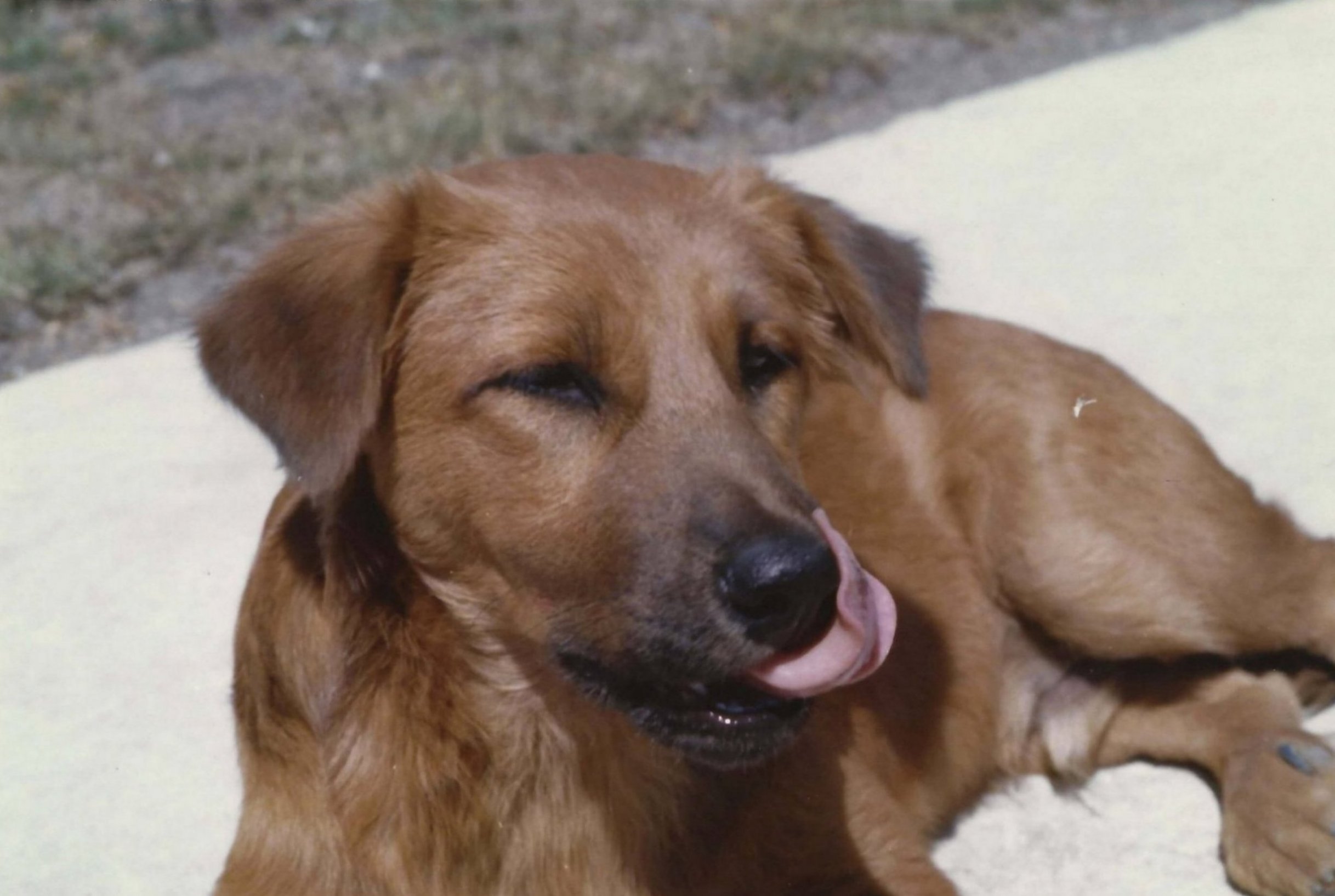
Teenage Ziggy
Story Themes: 5th Special Forces Group, Animals, dog, Dong Ba Thin, II Corps